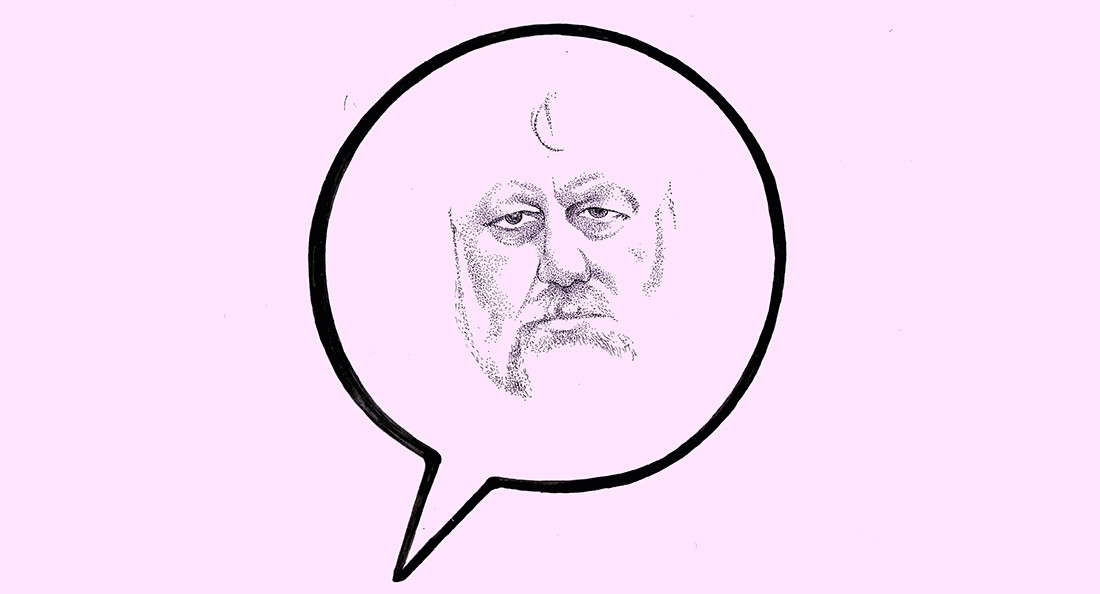Questioning and challenging philosophical thought
Humanism and posthumanism to be discussed at Axworthy Lecture
On April 19, Slavoj Žižek will visit the University of Winnipeg (U of W) for the Axworthy Distinguished Lecture Series. Žižek is a Slovenian political philosopher, psychoanalyst and prolific writer on critical theory.
Matthew Flisfeder, a professor in the U of W department of Rhetoric, Writing and Communications, reached out to Žižek to invite him to speak at the U of W.
Flisfeder says Žižek is a controversial figure, and mentions that Žižek always speaks from a leftist perspective in regards to social justice.
“But what he likes to do is challenge even the left to think about and to question and refocus its own assumptions,” he says.
For some, Žižek’s work makes critical theory more accessible by relating it to popular culture and films. However, some of his work and the language he uses has raised controversy surrounding sexism, homophobia and transphobia.
Alyson Brickey, a U of W English professor, commented on Twitter about the sexism surrounding Žižek’s recent essay on demystifying the vagina.
Brickey says the controversy around Žižek’s work seems to stem from his being asked to provide opinions on certain issues, especially those surrounding gender.
“What upsets me most about some of the stuff that I’ve read (by Žižek) is that he has a big enough platform right now that he can make these claims about the feminist movement, he can make claims about political movements that are agitating for equal rights for trans people,” Brickey says.
She says there are many people who are more fit to write about these specific topics than Žižek.
“It’s important that we listen to the perspectives of those who are directly affected by this kind of oppression. When we privilege a white male voice to speak on these issues, we also risk occluding those other voices,” she says.
Flisfeder remains that Žižek is dedicated to social justice.
“He says a lot of controversial things … but I think one of the most admirable things about (Žižek) is that he’s always eager not just to share his own ideas, but he likes to be challenged,” he says. “I think that when you meet him and interact with him and challenge him, he’s forced to rethink his conception.”
Flisfeder says when Žižek is challenged on controversial ideas, he goes back, rethinks these ideas and clarifies the meaning behind them.
“I think the clarifications are some of his best work,” Flisfeder says.
Flisfeder says Žižek’s lecture will challenge the discourse of social justice “and to force us to think about and question our assumptions, to make sure that the assumptions we have about the best ways to fight and defend social justice really are going to get at the underlying causes of social injustice.”
Brickey says whether Žižek’s work presents problematic ideas or not, it is important for readers to remain critical and decide for themselves what to take from his texts and any text.
“We need to teach responsible, careful reading and analysis and critical engagement in order for students to feel empowered to meet philosophy one-on-one,” she says.
Brickey says she is looking forward to seeing Žižek’s lecture and for the larger conversation that might occur within the U of W community surrounding it.
“That’s theory at its best, us having conversations, engaging with these issues, questioning what we’re going to take and what we’re not going to keep from Žižek’s thought.”
Slavoj Žižek will speak on April 19 at 7 p.m. in Riddell Hall.
Published in Volume 73, Number 20 of The Uniter (March 7, 2019)








